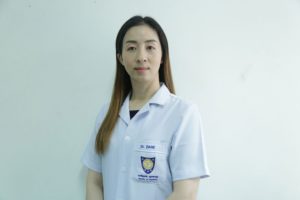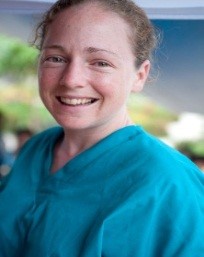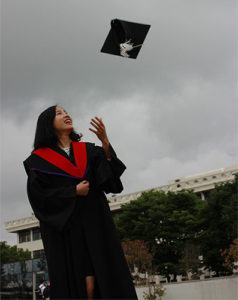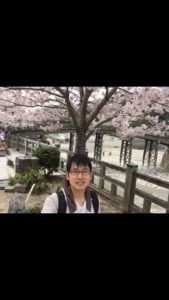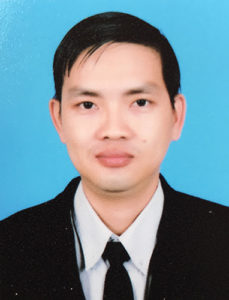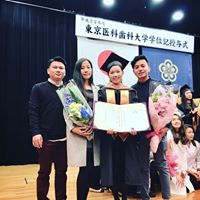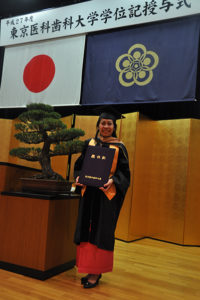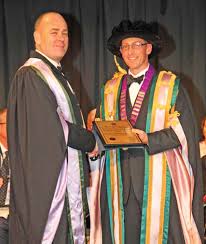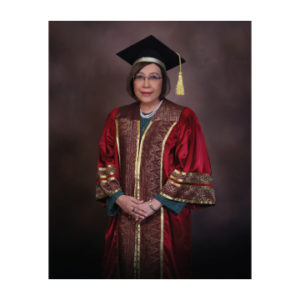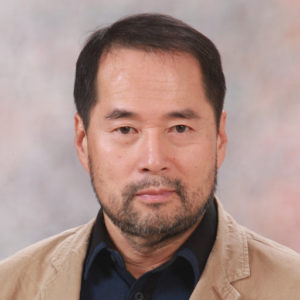Dr. SOEURN Visal
Academic success is very important for students, schools, universities and communities. Although indefinite closure of all types and levels of physical classes has been effectively implemented, the learning and teaching activities within the Faculty of Pharmacy (FoP) are continuing to run smoothly through online delivery. The FoP currently uses Google Meet and UPOP as part of learning and assessing and Semester Two has been underway for nearly three months now. The results of online learning and teaching have been very good. Ms. Ya Kimheang, who finished her Master’s Degree from Thailand, currently teaches Notion of Galenic Pharmacy within the Faculty. She is firm in her belief that online learning really offers great opportunities for students to improve their essential skills, particularly in respect of the technology used to assess the different libraries of knowledge. During the COVID-19 pandemic, she has had to adapt quickly with various online platforms. It is very different from physical classes, as she needs to design and use different teaching materials, encourage more digital interaction with students and keep tracking students’ performance regularly. Overall, her classes are running very well with great satisfaction from students.
COVID-19 has also altered the daily routine of children, teens, youths, and adults around the world. One of the major changes is the educational transition from physical class to remote and online learning. Pharmacy students have many shared experiences of their online learning at UP.
“So far, online learning is pretty good in my opinion. It benefits me in many ways as I can focus and listen clearly at home. Also, I still can ask questions when needed. The major challenge happens when we do group discussions. We used to sit next to each other and share the ideas. It was more interactive and convenient. Now it changes. Anyway, learning online lets me explore more about technology. Besides writing on pieces of paper, I started to manage my lessons on my computer. It is easier and faster than before.” said Ms. Buth Bunleap, a Year 5 pharmacy student.
One of our Year 4 pharmacy students also shared her learning experience: “Personally, I think the online platform is quite helpful during this difficult time. With the adoption of distance learning, I can spend more time with my family as well as saving travelling costs and time. I also have more time to do assignments, learn independently and do other work. However, internet disruptions and electricity cut-offs are very distracting during online sessions. In addition, applied pharmacology and clinical biochemistry courses are really complicated which I prefer to study face-to-face. Overall, online learning is a great experience for me but studying in regular class is still more effective due to the fact that I can pay more attention.” stated Ms. Has Sophea.
Similarly, Ms. Hul Marina, one of our year-3 pharmacy students, commented that online learning has been an interesting educational challenge during the coronavirus pandemic. As a student, sitting in the room, learning via computer screen is a very new experience for her. There are so many things to catch up on which is especially challenging when there is no internet connection or when sometimes there are not enough resources. Normally, this month is ‘exam season’ so everyone normally spends more time in the library with their books and assignments. However, due to COVID-19, everyone stays at home. Nevertheless, she thinks it is an innovative idea to learn from home when we are not able to go to school. Marina has been impressed by how this new approach has been provided and developed by UP so effectively. She has enough time, studying and focusing on every subject at home and she’s able to spend more time with her family. Even though she cannot meet her friends as she usually would, they still video call and do homework together. Marina has been learning a lot from this new way of technology-based learning and she believes that it is a positive option for students who aren’t able to attend campus in the near future.




